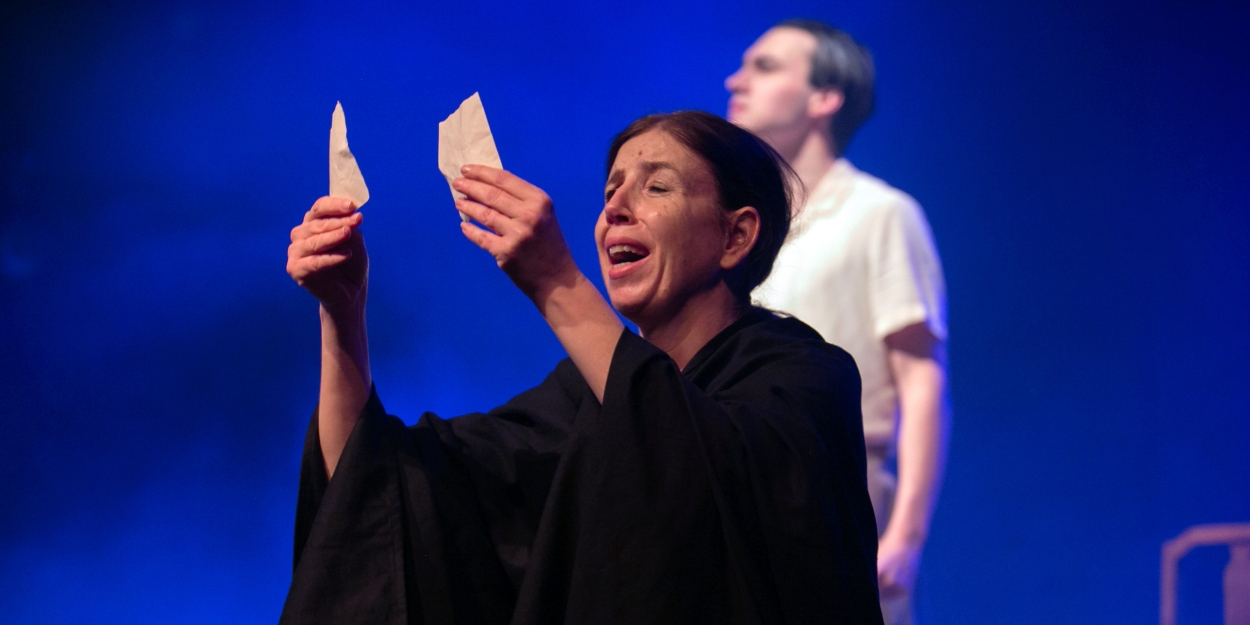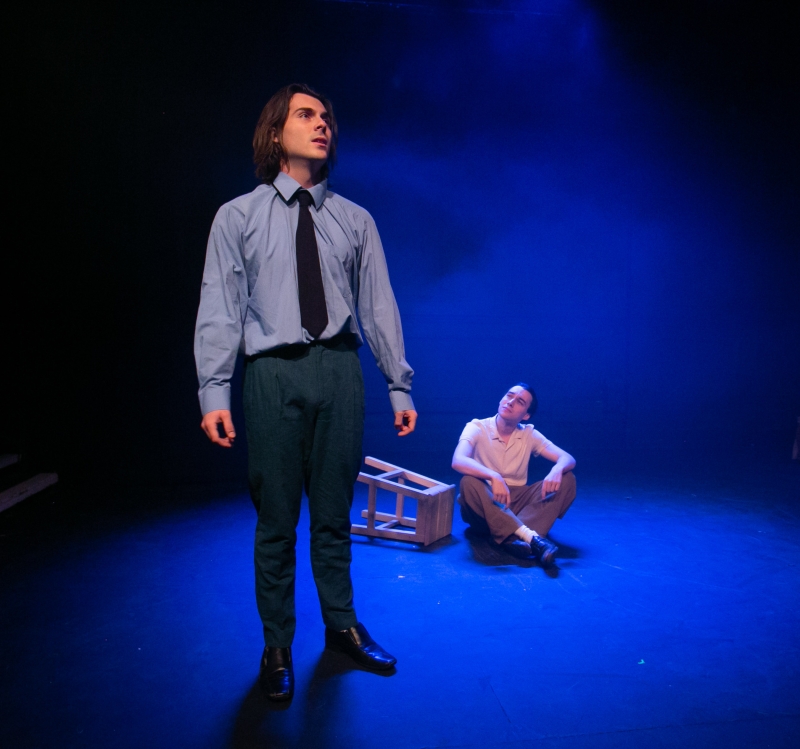Review: THE MOTHER OF KAMAL, Upstairs at the Gatehouse
60 years of history told through one broken family in Baghdad and beyond

 There’s a temptation to look at the jubilant scenes of VE Day in Europe and VJ Day in the USA and think of it as an end point, a terminus in a tale of global conflict and, ipso facto, The Holocaust. In a sense, it was, but in another sense, it was just the start of the turmoil triggered by World War II’s aftermath.
There’s a temptation to look at the jubilant scenes of VE Day in Europe and VJ Day in the USA and think of it as an end point, a terminus in a tale of global conflict and, ipso facto, The Holocaust. In a sense, it was, but in another sense, it was just the start of the turmoil triggered by World War II’s aftermath.
For thousands of years, Jews had lived, fully integrated, in Baghdad, speaking Arabic, holding prominent posts in all parts of Iraqi society. As an authoritarian regime took control, that was to end and an all-too familiar persecution was instigated.
Dina Ibrahim’s play focuses on one family (she plays the eponymous mother) to tell the story of that upheaval. We meet her having lost one child, but devoted to her two sons, who bicker and fight the way boys do. She is illiterate, but her husband speaks multiple languages and her children (she also has a daughter) are bright and destined for greater things. We also see her friendships with Muslims and how they protected the family when the knock in the night came at the door.
They didn’t escape entirely though. Kamal (Mirdrit Zhinipotoku), the older sibling, is academic and sensitive, fearful of what prison could do to his body and soul; Sasson (Jojo Rosales) is more headstrong, more radical, a committed Communist, spitting in the eye of anyone who intimidates him. And then, as we expected in such a set up, the mother is presented with a heartbreaking choice.

Nalan Burgess and Manav Chaudhuri play a range of other roles as the years pass, filling out the background of the mother and sons. Kamal makes it to Glasgow to study and later becomes a successful doctor in New York; Sasson serves his time inside, but retains his political convictions and makes it to Israel. Neither knew what led to their divergent fates and a tension hangs in the air amid whispers of sellouts. There’s only one person who knows the truth and a reckoning eventually arrives.
The play is worthy rather than gripping, extended to two hours plus an interval from its initial at the Camden Fringe in 2023. There are some beautifully poetic speeches and some fine evocative music, but there isn’t enough narrative drive to sustain the story over 120 minutes. It doesn’t help that the ‘two brothers, divided’ trope is overly familiar.
The Mother of Kamal is a welcome chronicle of a somewhat neglected period in the long history of Mesopotamia, reiterating again that lines drawn on a map can only touch the surface of such a depth of culture, politics and religion. To engage more fully with an audience less familiar with that vast tale of humanity, the drama of one family needed to be drawn more explicitly, the stakes portrayed more sharply, events lived on stage rather than reported after the fact.
The emotional force of the play never breached the fourth wall and that’s a shame because there’s so much that is relevant today in what we see happening to just one family among thousands between the 1930s and 1990s.
The Mother of Kamal is at Upstairs at the Gatehouse until 28 January
Photo Credits: Gary Manhine
Reader Reviews

Videos

